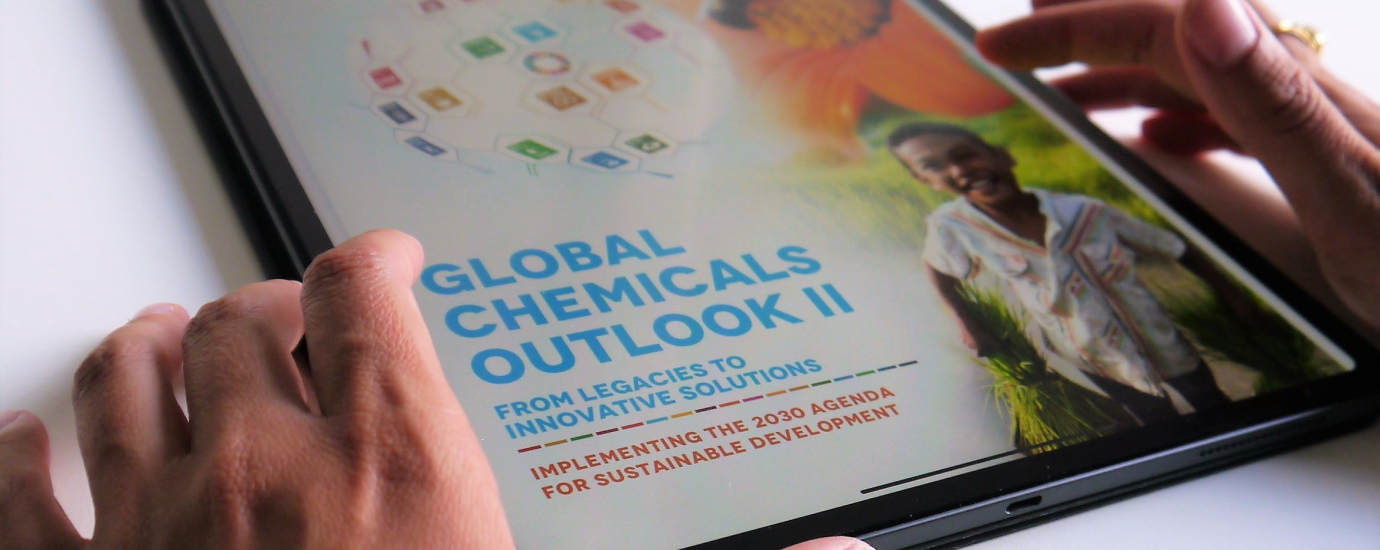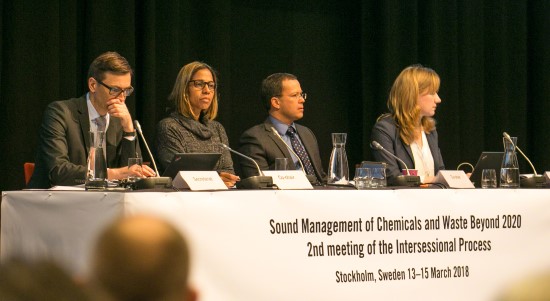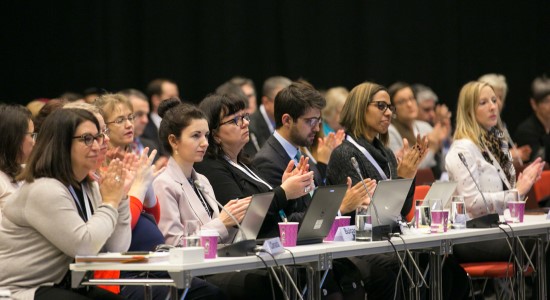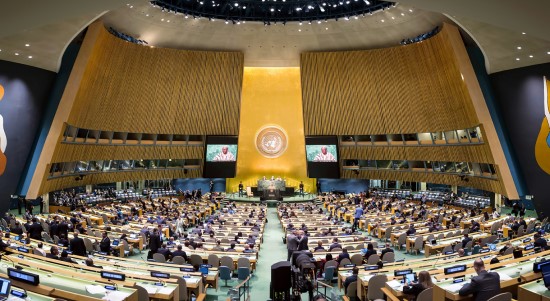The second relevant international publication on the sound management of chemicals is the Global Chemicals Outlook II (GCO-II). The GCO-II covers trends and indicators for chemical production, transport, use and disposal, and associated health and environmental impact. The ISC3 contributed to the second edition the “Global Chemicals Outlook II – From Legacies to Innovative Solutions: Implementing the 2030 Agenda for Sustainable Development.”

Global Chemicals Outlook II
Global Chemicals Outlook II
The “Global Chemicals Outlook II – From Legacies to Innovative Solutions: Implementing the 2030 Agenda for Sustainable Development” , has been mandated by the UN Environment Assembly in 2016. The Global Chemicals Outlook II is a comprehensive publication that assembles scientific, technical, and socio-economic information on the sound management of chemicals and serves for consultation for policymakers and other stakeholders around the globe. It seeks to alert policymakers and other stakeholders to the critical role of the sound management of chemicals and waste in sustainable development. It takes stock of global mega trends as well as progress made and gaps in achieving the global goal to minimize the adverse impacts from chemicals and waste by 2020. The most alerting finding of the GCO-II, which has been published in 2019, is that the global goal to minimize adverse impacts of chemicals and waste will not be achieved by 2020. The GCO-II key finding is that “Solutions exist, but more ambitious worldwide action by all stakeholders is urgently required”. Therefore policy frameworks such as the SAICM beyond 2020 process, other regulatory frameworks, awareness raising campaigns by the ISC3 or any other stakeholders are of utmost importance.[1]
Back in 2018 and ahead of the compilation of the GCO II the ISC3 together with UNEP hosted regional expert workshops in:
- Nairobi, 07.-08.03;
- Frankfurt, 26.-27.03;
- Panama City, 12.-13.04;
- Bangkok, 25.-26.04.
The workshops brought together diverse stakeholders from different regions, including innovators and entrepreneurs, policy makers, representatives from civil society and academia. The participants identified and examined regional megatrends and industry sector trends that may create risks and opportunities for chemicals management and sustainable chemistry innovation. The results from the workshop were fed into the Global Chemicals GCO-II in 2019 and provided a unique opportunity for experts from the scientific, private, and public sector to voice expectations, contribute ideas, and be part of the worldwide dialogue on Sustainable Chemistry innovation from the very beginning.
A process on an international level
The GCO-II has been prepared over the past three years through a process involving more than 400 scientists and experts around the world under the guidance of the steering committee of the Global Chemicals Outlook II with participation from all regions and a wide range of stakeholders. Representatives of the ISC3 co-authored chapters of the GCO-II or flanked the process within the steering committee by providing oversight, strategic direction and giving technical input.[1]
At the ISC3 we think translating scientific information in digestible and accessible information is a key condition to engage with the Sustainable Chemistry community and beyond. We see knowledge management and information dissemination as a cross-sectional task and engage with decision makers from politics, industry, science, innovation, research and civil society. The first “Global Chemicals Outlook: Towards Sound Management of Chemicals” was published in February 2013 and assembled scientific, technical, and socio-economic information on the sound management of chemicals.[1]
References:
[1] Report - Global Chemicals Outlook II: From Legacies to Innovative Solutions, https://www.unep.org/resources/report/global-chemicals-outlook-ii-legacies-innovative-solutions



